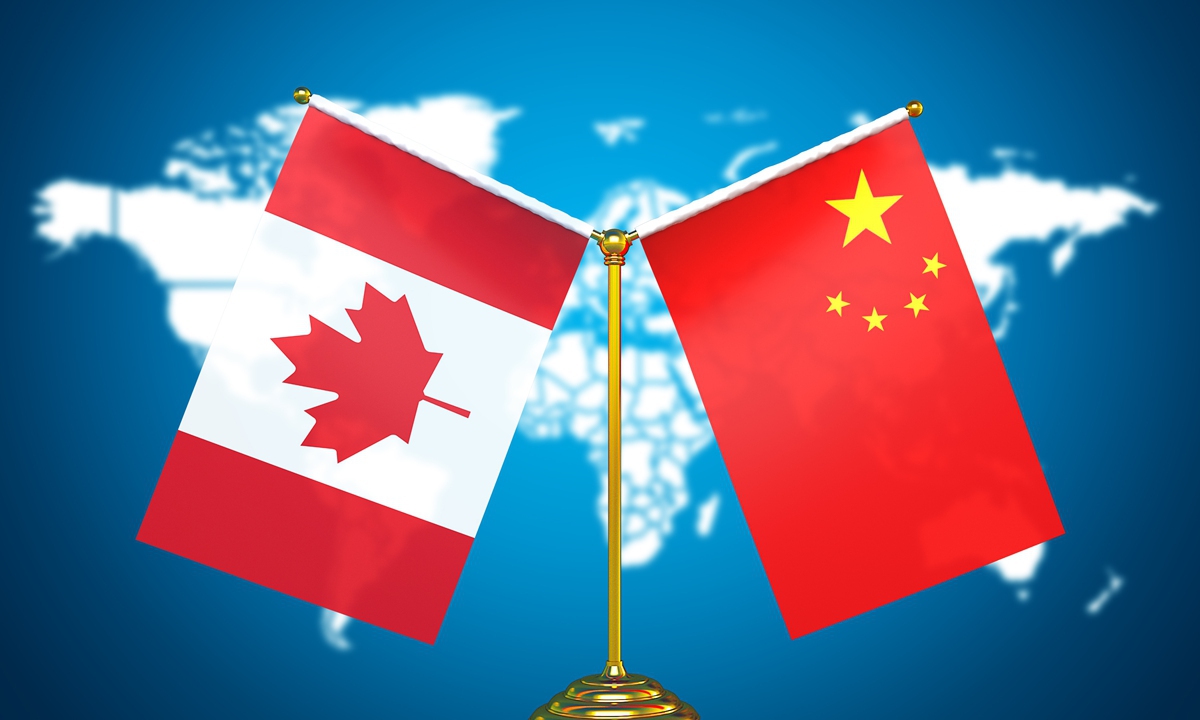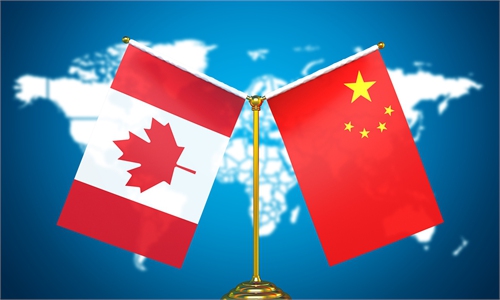Canadian trade representative rebuts poll, emphasizes importance of bilateral trade

China and Canada Photo: VCG
"Do not fall victim to this sensitive political environment," a Canadian trade representative in China said on Tuesday, slamming a poll conducted in November that suggested that three in five Canadians believe the country should reduce its reliance on China for trade.
With 2,005 respondents, the Angus Reid Institute poll suggested that 61 percent wanted Canada to trade less with China, while 24 percent believed China is as good a trade partner as any.
Of those who want their country to deal with China less, three-in-10 believed it's possible to do so without negatively affecting Canada's economy at all, and a further three-in-five said Canada could reduce its reliance on China for trade with a minor economic impact, the poll said.
In 2020, China represented some C$101.6 billion ($80.35 billion) worth of trade in and out of Canada, with the import and export volumes with China reaching a record high proportion of the country's total. China remains Canada's second-largest trading partner following its neighbor the US, according to the Chinese Ministry of Commerce.
Noah Fraser, managing director and chief representative of the Canada China Business Council in China, told the Global Times on Tuesday that despite recent years being an extremely challenging time in the bilateral relationship at the political level, Canadian trade with China has actually increased.
"While we can understand that there is still ongoing tension between the two countries despite a resolution to our biggest hurdle, we should ensure that opportunities for our two countries to mutually benefit from trade, in sectors like agrifood, natural resources and financial services, do not fall victim to this sensitive political environment," Fraser said.
"Both countries should be able to have productive discourse, especially around areas of disagreement, but also be able to 'walk and chew gum at the same time',' he added.
Li Haidong, a professor at the Institute of International Relations of the China Foreign Affairs University, said that a poll's results are usually significantly affected by the organization that conducts it, in light of its political tendency and attitudes toward China, so the credibility of such results should be given a question mark.
"The shift in the public perception of China is also a consequence of the growing hostile China stance that the current government has adopted, by making ungrounded accusations such as 'hostage diplomacy'," Li told the Global Times on Tuesday.
Canadian Prime Minister Justin Trudeau said in an interview with Global television in late December 2021 that China has been "very cleverly playing us off each other in an open market, competitive way."
He called for a united front among Western countries against China "to prevent the Asian state from using commercial interests to play them against each other," the local media outlet reported.
Earlier that month, Canada said it would join allies in a "diplomatic boycott" of the Beijing 2022 Winter Olympic Games in the name of the so-called human rights issues.
"Now that the Meng Wanzhou extradition case has been concluded and the two Canadian nationals have returned to their motherland, the Trudeau administration should take the chance to enhance personnel exchanges and commercial ties with China rather than the other way around," Li said.
Trudeau's move will undoubtedly cast shadows on the cultural and business communications between the two peoples, experts said, urging Canada to correct its wrongdoings and stop harming the already fragile bilateral ties.


